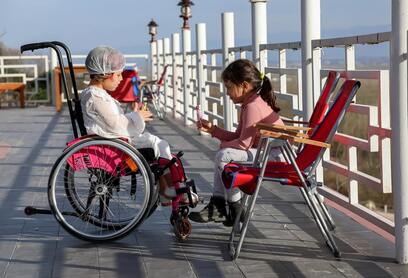| Andrea Gibbs was born, raised, and is still living in New York. She's a work-at-home mom with a background in business development, strategy, and social media marketing. She's also a blog contributor at Baby Steps Daycare in Forest Hills, New York to motivate and educate other parents about how they can get their children ahead of the game in school. |
Be a good example
A child who sees his parents doing these things will easily pick up these skills. But, on the other hand, if the kids see their parents not living responsibly, it may discourage them from improving their habits or learning important responsibilities.
Be a teaching coach
For example, if he gets into trouble at school for not handing in his assignment on time, help him develop ways to solve this problem next time around. Perhaps he needs to be more prepared for deadlines or needs extra help from you and the teacher with his assignments.
Encourage your child to do good deeds
Teach your child about the value of learning
Also, you could encourage them to try new things such as attending school camps, spending time with adults who love learning, volunteering for a group project at school, joining clubs, and making friends with people who learn new things every day. These experiences will positively influence their lives and inspire them to continue learning and growing.
Give your child a responsibility journal
So he can see how he is constantly making contributions and how he needs some help from you or others occasionally. You could even make him a list of all the things that his family needs him to do around the house, then give him the first few days to do them first. That way, he will learn why these tasks are important and try hard to stick with them for a while.
Teach your child how to make consequences happen
It will allow your children to understand that they cannot procrastinate on their responsibilities without having some negative consequences at the end of the day for them to deal with.
Give your child responsibility for his physical well-being
Praise your child's efforts and accomplishments
By doing this, your child will learn to respect himself and appreciate what he is doing for others around him. He will eventually feel more confident in himself and gain a sense of independence once he realizes that his efforts matter even if it means facing challenges now and then.
David B. Younger, Ph.D. is the creator of Love After Kids, for couples that have grown apart since having children. He is a clinical psychologist and couples therapist with a web-based private practice and lives in Austin, Texas with his wife, 16-year-old son, 7-year-old daughter and 9-year-old toy poodle.





 RSS Feed
RSS Feed